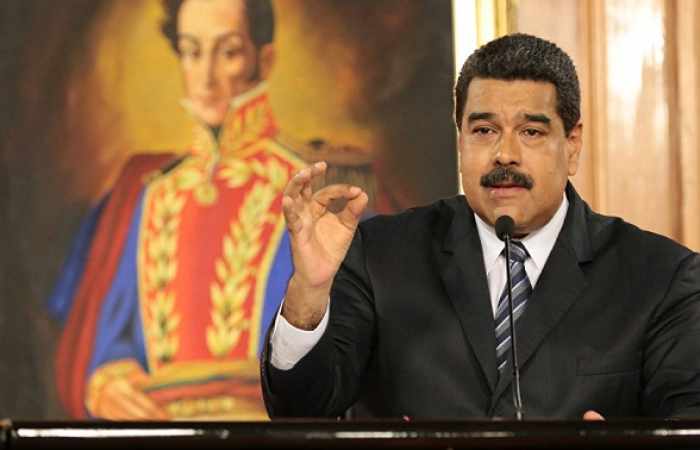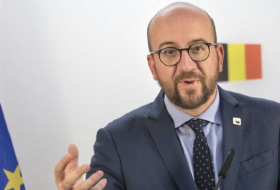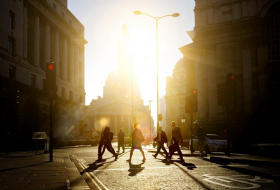The government, which had announced plans for the new digital currency late last year, said the initiative was a response to a financial crisis marked by a profound devaluation of the national currency, the bolívar, and quadruple-digit inflation.
The country is suffering desperate scarcities of food and medicine, soaring crime rates and the collapse of public services and the health system. The crisis has driven hundreds of thousands of Venezuelans to flee the country seeking a better life.
The Maduro administration hopes that sales of the digital currency, known as the petro, will help its treasury pay off debt and increase imports of vitally needed goods, as well as raw materials for manufacturing.
Venezuelan officials also asserted that the new digital currency — the first to be issued by a nation — would allow investors to do an end run around sanctions imposed against their country by the Trump administration. These sanctions ban the purchase in American markets of new securities issued by the Venezuelan government, and outlaw business dealings with Mr. Maduro and several top administration officials.
“For big problems, big solutions,” Mr. Maduro said Tuesday night at a ceremony in Caracas. “We Venezuelans are indomitable.”
He called it a “cryptocurrency to take on Superman.”
But many analysts and critics of the government did not give the digital currency much hope of success.
“I just think it’s a desperate move by a regime that is increasingly isolated and has an economy that has spiraled out of its control,” said Cynthia J. Arnson, director of the Latin American Program at the Woodrow Wilson International Center for Scholars.
The Venezuelan government has said the value of the petro will be tied in some way to the value of a barrel of Venezuelan oil. But the Maduro administration has not given many details on how this pricing would work, and many investors have said they would not trust the government to faithfully maintain the link between the petro and the price of oil.
“The petro will most likely suffer all of the same ills as Venezuelan debt,” predicted David Smilde, a sociology professor at Tulane University who has researched Venezuela for more than two decades.
A spokesman for the United States Treasury Department warned American investors last month that the petro might still run afoul of the sanctions, telling Reuters that the currency “would appear to be an extension of credit to the Venezuelan government” and could “expose U.S. persons to legal risk.”
Senator Marco Rubio of Florida, a Republican, and Senator Robert Menendez of New Jersey, a Democratic, wrote to the Treasury secretary, Steven Mnuchin, in January, asking him to monitor the situation closely.
“We have serious doubts about whether Venezuela has the capacity to launch a cryptocurrency,” the letter said. “But regardless, it is imperative that the U.S. Treasury Department is equipped with tools and enforcement mechanisms to combat the use of cryptocurrency to evade U.S. sanctions in general, and in this case in particular.”
Critics of the Maduro administration, including many in the international community, attribute the nation’s economic problems to government mismanagement. Mr. Maduro blames a conspiracy involving the political opposition working in concert with foreign governments, especially the United States.
On Monday, Mr. Maduro made an overture to President Trump, inviting him for bilateral talks through a Twitter post.
“@RealDonaldTrump campaigned promoting noninterference in other countries’ domestic affairs, “ he said. “The time has come to fulfill it and change your agenda of aggression for one of dialogue.”
Mr. Maduro added: “Dialogue in Caracas or in Washington, D.C.?”
The Trump administration has sought to justify its sanctions against Venezuelan officials by accusing them of political repression and public corruption.
Last month, while adding four more names to the growing list of Venezuelan officials placed in the sanctions list, the Treasury Department criticized the nation’s all-powerful Constituent Assembly for prohibiting three major opposition parties from participating in the presidential election.
Mr. Maduro will be running for re-election in the April race, and with his government in control of the electoral machinery and the highest court, he is expected to win. But the United States, Colombia and other countries have already declared that they will not recognize the results.
Ms. Arnson said the introduction of the currency could provide a political lift to Mr. Maduro’s re-election ambitions.
“Looking like you’re doing something to save the economy, that goes beyond paying off your foreign creditors, is an important part of the electoral strategy,” she said. “But I think this is fantasy-land in terms of being an economic life jacket.”
The Venezuelan government’s petro initiative is one of the wildest outgrowths of an explosion in activity around virtual currencies over the last year. Inspired by the skyrocketing price of Bitcoin in 2017, many entrepreneurs raised money by creating and selling their own virtual currencies in so-called initial coin offerings.
Many governments around the world have also been examining whether it would make sense to issue their own electronic currencies on something similar to the network that Bitcoin runs on, with the Bank of England and the People’s Bank of China announcing experiments.
Russian government officials have also discussed issuing some sort of crypto-ruble, to evade American sanctions.
But no government has moved ahead more swiftly, and with more abandon, than Venezuela.
The documents that have been put out by the Venezuelan government suggest that the petro’s release will be similar to the offerings done by private companies.
The petro white paper said the process would begin with a presale of digital tokens, to gauge demand, and then be followed by an “Initial Coin Offer,” with 82 million petros released to the public. The petros are then supposed to be tradable on virtual currency exchanges around the world, the white paper says.
A petro website says the Venezuelan government will accept the petro for tax payments and fees. Mr. Maduro directed the state oil company, PDVSA, and other public companies to handle a percentage of their sales and purchases in petros.
Coin offerings have been attractive to entrepreneurs because investors can send their money using Bitcoin or other existing virtual currencies, which do not go through banks or other institutions that could decline the transactions.
The movement of money outside of the traditional banking system has allowed coin offerings to go ahead even though American regulators have said that most of them are probably violating the law.
The same structure could be beneficial to Venezuela, given that it is facing American sanctions that have made it hard to raise money through established channels.
For investors, though, the petro may be a hard sell, given that the system will be designed and controlled by the Venezuelan government, which has not been the most reliable financial player.
The Venezuelan government has said the value of the petro will be tied in some way to the value of a barrel of Venezuelan oil. But the Maduro administration has not given many details on how this pricing would work, and many investors have said they would not trust the government to faithfully maintain the link between the petro and the price of oil.
The design of the petro, while clearly inspired by Bitcoin, would, in some ways, be the opposite of most virtual currencies like Bitcoin, which are designed to operate without any central government or authority in charge.
Bitcoin has largely won over investors because there is no central authority that could suddenly change the number of Bitcoins to be released, or the rules of the network.
With the petro, on the other hand, the confidence of investors is likely to be only as strong as their confidence in the Maduro government.
New York Times
More about: Venezuela
















































